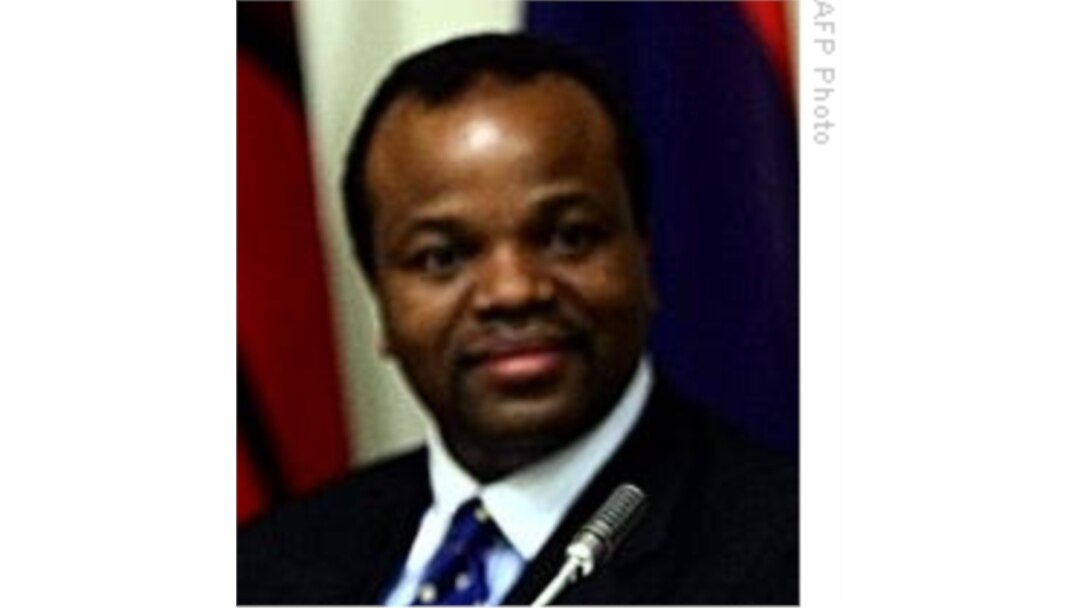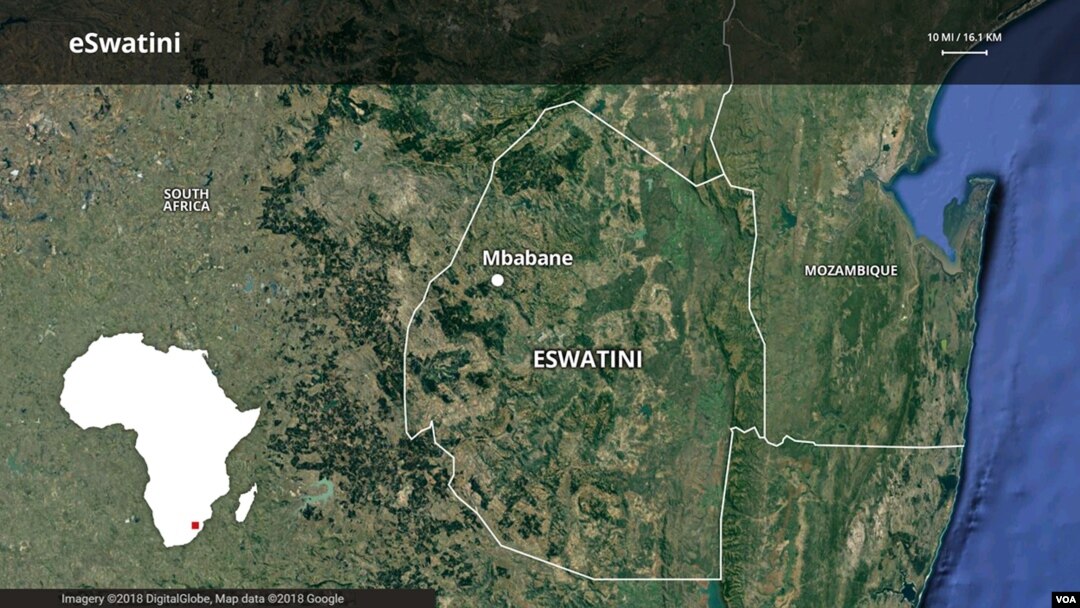A second journalist in less than a month has fled the tiny southern African kingdom of eSwatini, formerly known as Swaziland, alleging government intimidation and harassment.
Journalist Eugene Dube recently told VOA he fled eSwatini early May 5 after royal police came to his house for the third time within a month to say he was wanted for interrogation.
"The reason I have left is that my life was in danger," he told VOA, explaining that police told him that his reporting on a political opposition group had upset King Mswati III, the last absolute monarch in Africa.

King Mswati III
"Police alleged ... I had given a platform to one of the radical political groups, the newly formed Economic Freedom Fighters of Swaziland," said Dube, who is an editor for Swati Newsweek. "The police told me that the king was not happy about this story because it promotes democracy.
"The EFF of Swaziland was trying to say the kingdom of eSwatini must have a multiparty democracy and must have a constitutional monarch, not an absolute monarch."
Phindile Vilakati, chief information and communication officer of the royal eSwatini police, confirmed to VOA that police had visited Dube’s home to execute a search warrant as part of an investigation and that some items had been seized. She said that Dube was never arrested and that the investigation involved Dube's contravention of COVID-19 regulations.
Dube responded to the spokesperson's assertions by telling VOA that "I've never been questioned on breaching any regulations of the COVID-19. It's news to me."
Dube said police mentioned nothing about COVID-19 regulations when they detained him for nearly nine hours on April 23. "If there was any evidence to that, the police will have charged me," he said.
Dube said he hid in the forest for over a week before illegally crossing into South Africa by foot.
"I had to cross an overflowing river to get to South Africa," he told VOA. "Fortunately for me, the soldiers didn't notice me on both sides in South Africa and in Swaziland. Right now, I'm hiding in a certain location that I cannot disclose at the moment.”
Harassment
In late April, Zweli Martin Dlamini, editor of Swaziland News, told VOA that he'd fled the kingdom after being harassed by police, following publication on April 11 of a news report that the king had contracted the coronavirus and that the government was not forthcoming with information.
A rights group, the Swaziland Solidarity Network, said police had raided Dlamini’s home and harassed his family. In addition to reporting on the king’s health, Dlamini has published several articles critical of the king, whose lavish lifestyle is in stark contrast to the dire poverty faced by most Swazis.
Paris-based Reporters Without Borders, known by its French acronym RSF, says eSwatini police also arrested and interrogated Swati Newsweek journalist Mfomfo Nkhambule in April for critical reports about the king.
“The proceedings initiated against these journalists amount to persecution,” said Arnaud Froger, the head of RSF’s Africa desk. “The systematic harassment and intimidation of journalists who dare to criticize the king or his government pose a major threat to independent news production. Hounding critical journalists is all the more unacceptable at this time, as it is liable to encourage even more self-censorship and reduce access to reliable and credible information about the coronavirus crisis.”
As of Thursday, the landlocked nation of 1.1 million people had 187 confirmed cases of COVID-19, with two deaths, according to Johns Hopkins University researchers.
“Swazi police should stop threatening journalists like Eugene Dube and Mfomfo Nkhambule for writing critically about King Mswati III, and should instead champion their right to report freely,” said Angela Quintal, Africa program coordinator for the U.S.-based Committee to Protect Journalists. “The era of ‘the king can do no wrong’ has long been relegated to the annals of history, and the police should rather focus their resources on fighting real criminals, not the press.”
Renamed the Kingdom of eSwatini at King Mswati’s behest in 2018, the small southern African enclave ranks 141st out of 180 countries in RSF's 2020 World Press Freedom Index.
This story originated in VOA's English to Africa service.


